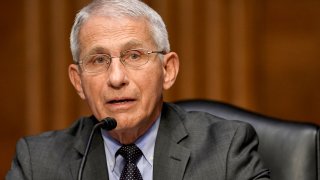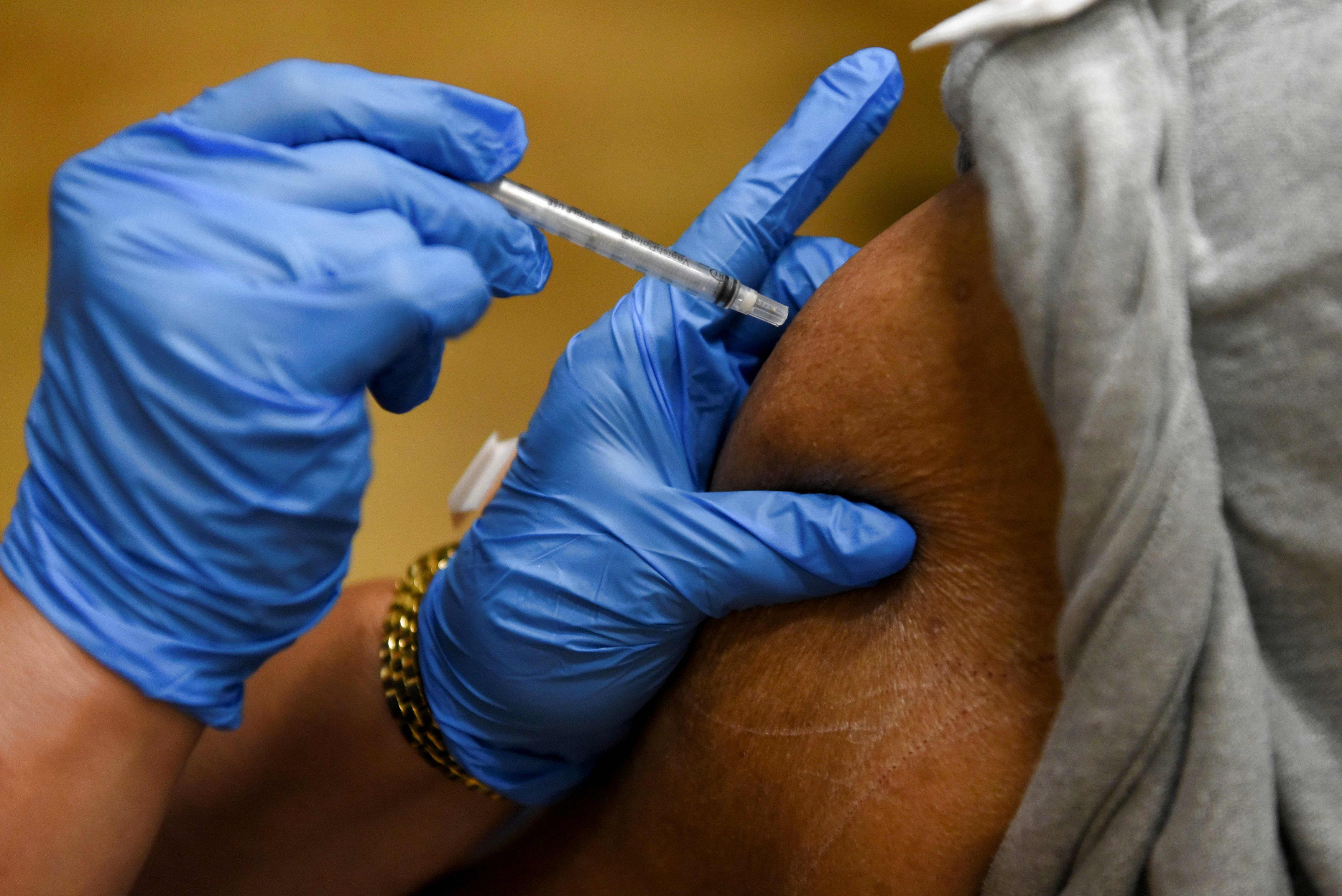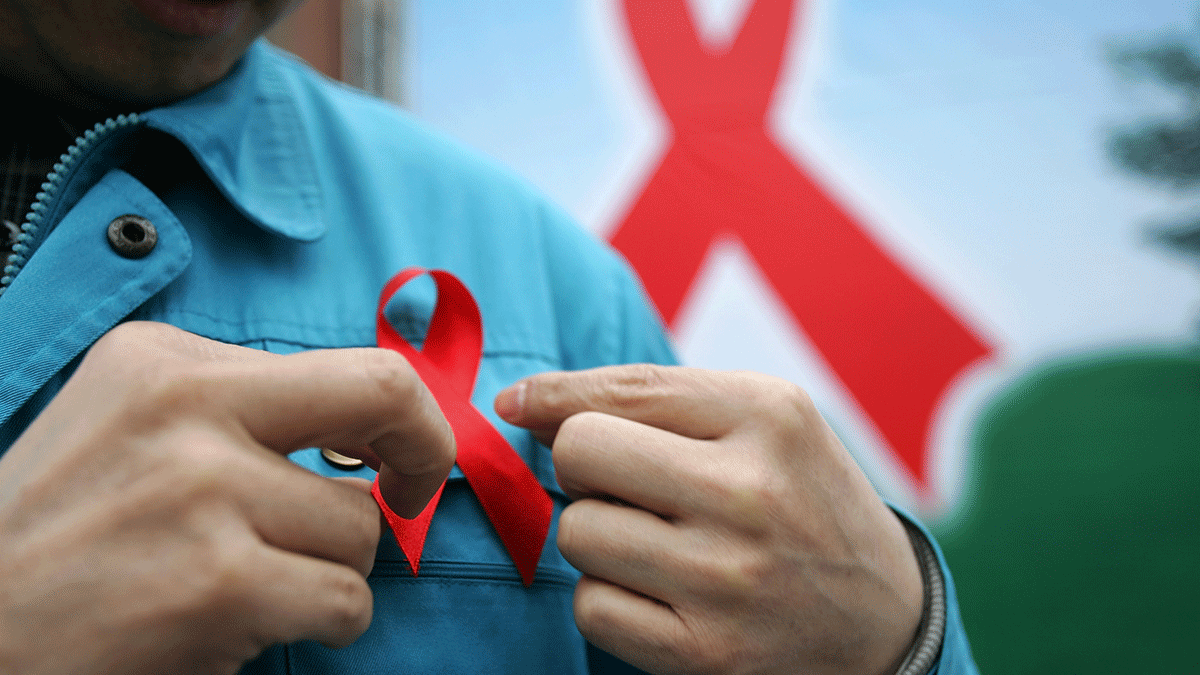
Dr. Anthony Fauci, the top U.S. infectious disease expert, said Tuesday the COVID-19 pandemic has diverted scientific and financial resources from the fight against AIDS, seriously impeding global efforts to achieve the U.N. goal of ending AIDS by 2030.
Fauci told the U.N. General Assembly that tackling COVID-19 has also disrupted supply chains and increased the risk for people with HIV, the virus that causes AIDS, of being infected with another deadly virus.
“To confront these challenges, we must intensify our collaborative research efforts and unclog supply chains through investment and regulatory action,” he said. “We also must assure that people with HIV in all countries have early access to effective COVID-19 vaccines and therapeutics while their supply of anti- HIV drugs also is maintained.”
But President Joe Biden's chief medical adviser has also pointed out how all the work being done to tackle COVID could be useful.
Get Connecticut local news, weather forecasts and entertainment stories to your inbox. Sign up for NBC Connecticut newsletters.
"It’s likely that one could build on some of the tools and platforms used for COVID-19 vaccines," he wrote in an op-ed article for Nature published on Monday.
“There’s a lot of new energy and buzz among scientists looking at how quickly some of the COVID science got done,” Rowena Johnston, the vice president and director of research at amfAR, an international nonprofit AIDS research group, told NBC News. “I think there’s been a lot of soul-searching about how the scientific enterprise can be improved so that we can better serve the people we’re trying to help.”
Fauci, the director of the National Institute of Allergy and Infectious Diseases, spoke at the assembly's commemoration of World AIDS Day, which is Wednesday. The 40th anniversary of the first report that brought AIDS to the attention of the public was on June 5.
More HIV/AIDS Coverage
Fauci said he has been “deeply engaged” in responding to both the HIV/AIDS and COVID-19 pandemics, and “they have stimulated responses we all can be proud of including remarkable scientific progress, global cooperation and widespread compassion, particularly in the distribution of life-saving AIDS medications.”
“On the other hand,” he said, “they also reveal that as a global society, we still are struggling with long-standing inequities in health care access, and very real health communication challenges linked in some countries to waning trust in core institutions.”
Fauci said in a recorded speech that much of what scientists and public health experts learned from their long investment in HIV/AIDS research “has been successfully applied to the COVID-19 pandemic.” He pointed to the design of drugs and the potential impact on survival of monoclonal antibodies, which can fight infections.
“Important discoveries stimulated by COVID-19 may also help us make progress against HIV/AIDS,” he said, singling out messenger RNA vaccines and the pool of substances that are effective in vaccines.
MRNA vaccines work by using a piece of genetic code from the spike protein of the coronavirus to train the immune system to generate a response. Both the Pfizer-BioNTech and the Moderna vaccines rely on mRNA.
Fauci said COVID-19 also showed how quickly scientists and public health officials can respond to counter a pandemic when there is substantial and sustained financial investment, “and perhaps most importantly, when governments and the private sector work together” and provide incentives for production.
Now, he said, the challenge for scientists, funders and supporters of research “is to apply these lessons to fight against HIV/AIDS.”
UNAIDS, the U.N. agency leading the global effort to end the AIDS pandemic, issued a report Monday saying new HIV infections are not falling fast enough globally to stop the pandemic, with 1.5 million new HIV infections in 2020. It warned that the world could face 7.7 million AIDS-related deaths over the next 10 years if leaders don’t tackle the inequalities in the availability of drugs and treatment.
COVID-19 is also undercutting the AIDS response in many places, UNAIDS said, pointing to a decline in HIV testing, and fewer people with HIV initiating treatment in 2020 in 40 of 50 countries it surveyed. The U.N. agency said HIV prevention services were also impacted.
UNAIDS Executive Director Winnie Byanyima told the General Assembly on Tuesday that “progress on AIDS, which was already off track before COVID, is now under even greater strain as the COVID crisis continues to rage, disrupting HIV prevention and treatment services, disrupting schooling, disrupting violence prevention programs and much more.”
In June, the General Assembly overwhelmingly approved a declaration calling for urgent action to end AIDS by 2030. It commits the assembly’s 193 member nations to implement the 18-page document, including reducing annual new HIV infections to under 370,000 and annual AIDS-related deaths to under 250,000 by 2025. It also calls for progress toward eliminating all forms of HIV-related stigma and discrimination, and for urgent work toward an HIV vaccine and a cure for AIDS.
Byanyima called the plan “exciting” but warned in a recorded speech that “only by moving fast to end the inequalities which drive the pandemic can we overcome it.”



